A Bit About Balinese Names
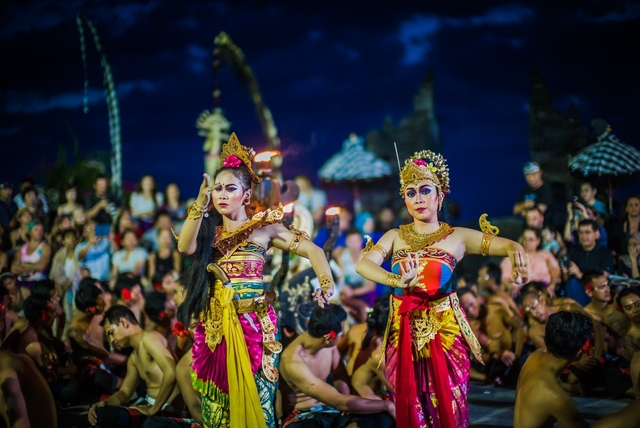
It doesn't matter why you came to Bali: to sunbathe, surf, practice yoga, experience Balinese culture, or enjoy the island's natural beauty. The most important and interesting thing is the local residents.
Very often, getting to know Balinese people doesn't go beyond interacting with hotel staff or traders at the market. And that's quite unfortunate, as Balinese people are among the friendliest in the world.
So, where to start?
If you want to get to know the locals better but don't know where to start, begin with the most essential thing - their names.
Even ordinary signs, business cards, or store names contain the name of a Balinese person, which can tell you a lot about the owner. Balinese people don't hide their names and will gladly tell you about them.
Most common Balinese names
For example, you arrive at a hotel, and at the registration desk, you're greeted by a girl named "Ni Wayan." Someone who knows will immediately understand that she is Balinese and is either the first or fifth child in her family.
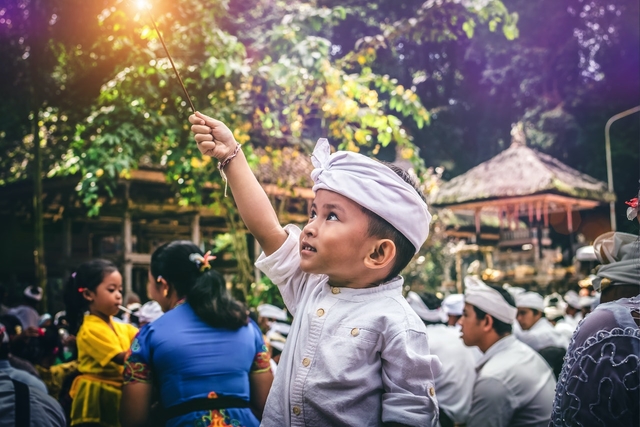
A Balinese person's name often indicates their birth order within the family. You can understand whether they were born first, second, third, or fourth. In Bali, the caste system is still used to some extent. Of course, it's not as rigid as in ancient times, but it is observed in the realm of religious rituals and certain other customs. The Hindu caste system was brought to Bali by the aristocracy who arrived from Java. They left Java when intense Islamization began there and after the fall of the major Hindu empire of Majapahit in 1520. Since then, castes emerged in Bali: Sudra (farmers and craftsmen), Wesia (merchants, warriors, landowners), Ksatria (aristocracy and warriors), and Brahmana (spiritual leaders, priests). The names of the Sudra caste.
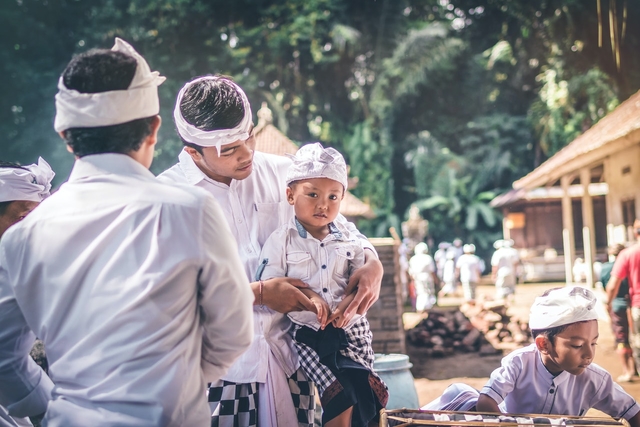
Names are given to children based on their caste. Children from the lower caste, who make up the majority of the island's population, are named according to their birth order.
For example, the first child might also be named Gede (Gede), and if it's a girl, Ni Luh (Ni Luh). The names Wayan and Putu can be used for a child of any gender. If it's a boy, you add "I" before the name, and if it's a girl, "Ni." I Gede, I Putu, I Wayan are names for firstborn boys, Ni Luh, Ni Putu, Ni Wayan are names for firstborn girls.
The second child is often named Made (Made) or Kadek (Kadek). Less commonly, they might be named Nengah (Nengah). The second child, if a boy, might be named I Made, I Kadek, I Nengah, and if a girl, Ni Made, Ni Kadek, Ni Nengah.
The third child might be named Nyoman (Nyoman) or Komang (Komang). Similarly, the third child, if a boy, would be called I Nyoman, I Komang, and if a girl, Ni Nyoman, Ni Komang.
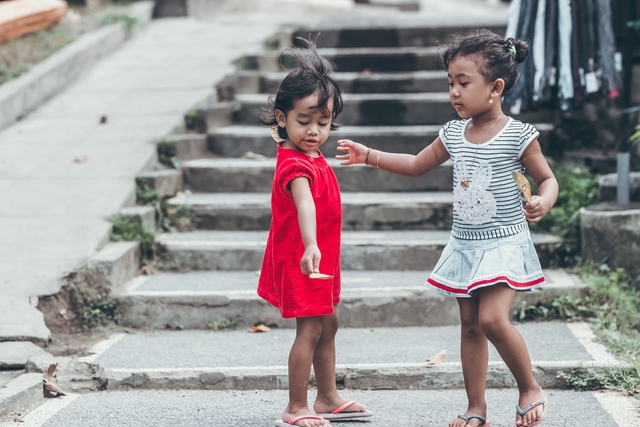
And only the fourth child can be called by a single name - Ketut. The fourth child, if a boy, will be named I Ketut, and if a girl, Ni Ketut.
This tradition dates back to ancient times when there was an attempt to control birth rates, and it was not recommended to have more than three children in a family. Ketut means "small banana" - the very last and smallest in a bunch of bananas.
You might ask, "What about naming the fifth, sixth, and so on children?"
If there are more than four children in a family, the cycle repeats. The fifth child can be named Putu, Wayan, Gede, Ni Luh, the sixth child Made or Kadek, and so on.
Apart from the ordinal name, a child from the Shudra caste can have a unique personal name, which is added after the ordinal name. Male names often, but not always, end with the vowel "a" (for example, Arimbawa), while female names end with the vowel "i" (for example, Suastini). This personal name is not passed on to the child; it's unique to the individual.
Names in the Wesia caste
Wesia names often contain the name "Gusti" - meaning "leader." Boys are frequently named Gusti Bagus (followed by a personal name), and girls are named Gusti Au (followed by a personal name).
Names in the Ksatria caste
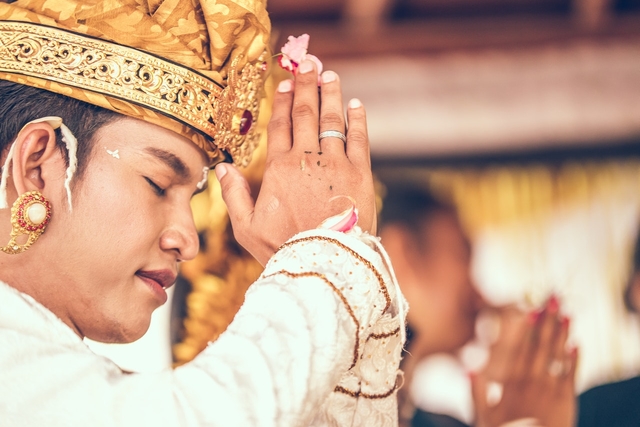
Names in the Ksatria caste are the names of local Balinese aristocrats and warriors. The royal family of Bali and all its members belong to Ksatria. The names of such individuals often contain "Agung." For example, one of the well-known figures on the island, who founded the Bali Museum, is named Anak Agung Gede Rai.
"Agung" means "great," and "Anak" means child. Agung names can take forms like Anak Agung (for men) and Anak Agung Ayu or Anak Agung Istri (for women).
Names of Ksatria representatives often start with "I Gusti Ngurah" for men (followed by a personal name), and for women, it starts with "Ni Gusti Ayu" (followed by a personal name).
Within the Ksatria caste, there is a sub-caste called Chokorda, which translates to "foot of the gods." Its members are often addressed as Chok (Tjok) for men and Tjokorda Istri for women.
Another, less common name in the Ksatria caste is Dewa. It can take forms like Ida I Dewa, Dewa Agung, or I Dewa (for men), and for women, Ni Dewa Ayu or Ni Dewa Desak.
Names of Brahmana
Brahmana is the priestly caste.
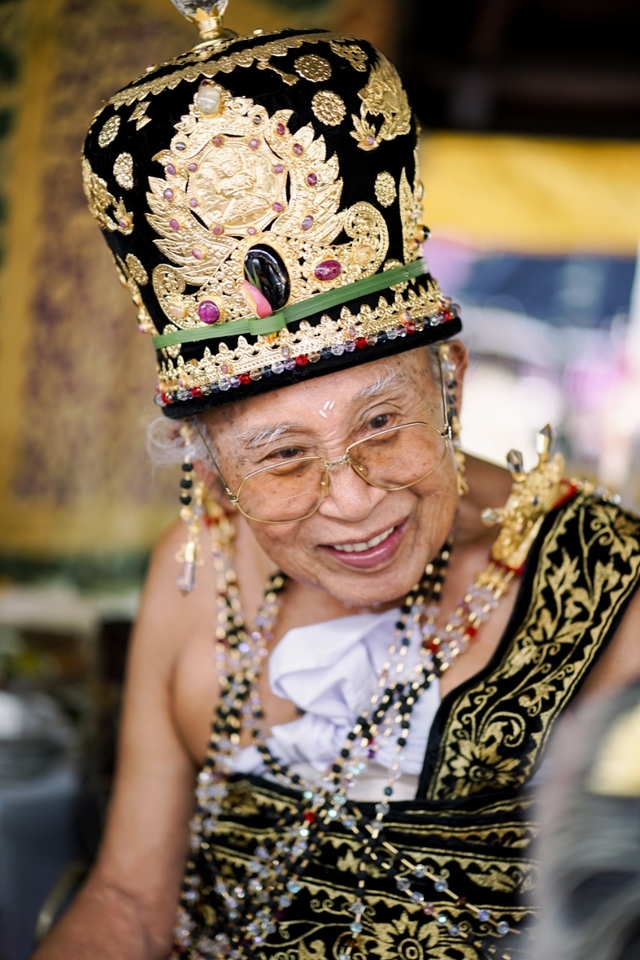
By the time of the Javanese invasion in Bali, there were already local Hindu priests. These local priests still serve in temples and perform all the necessary rituals and ceremonies, but they belong to the Sudra caste.
Brahmana individuals are traditionally teachers, scholars, judges, and priests. They officiate at major ceremonies, festivals, and events.
Children from this caste usually have names like Ida Bagus for males and Ida Ayu for females, followed by a personal name.
People often shorten these names; for example, the well-known Balinese entrepreneur Ida Ayu Ramayanti is more commonly known as Dayu Rama.
Pande refers to people outside the caste system.
Although the caste system is in place in Bali, there are instances where a person doesn't belong to any of these castes. They have their own designation - Pande.
Currently, they engage in various activities, but historically, people of this clan were blacksmiths. They believe to have descended from a renowned weaponsmith who came to Bali along with migrants from Java. His fame and skill granted him special privileges, one of which is the ancestral temple within the Pura Besakih complex. All individuals with the name Pande consider this temple their own and gather there regularly during important festivities.
If a man in Bali carries the name Pande, a birth-order name is added after it. For example, I Pande Made Mahardika or I Pande Putu Raka.
As explained by a representative of Pande: "In my family, we use the surname Pendit, which originated from Pande. For instance, my full name is Putu Ayu Nova Andina Pendit. My grandfather began adding the name Pendit to his children 100 years ago. But only to his direct bloodline children."
I received this name from my dad. My mom didn't have such a name. And my dad got the name Pendit from my grandmother, as the head of the family.
But my grandfather, who married a woman from the Pendit family, didn't have this name.
So, 50 years ago, some families started adding their own names to their children's names. Now in my hometown (Tabanan), there are some surnames that are already well-known - Dusak, Sapanca, and mine, Pendit."
Western Names
Some Balinese people use Western names, although such names are rarely given at birth.
Dayu Rama took the additional name "Danielle" when she opened her beauty salon. On her early advertising flyers, she was "Dayurama Daniell." Now she owns several bridal salons called "Daniell Salon & Bridal" in Denpasar and Sanur.
In Bali, you'll come across Indonesians from other islands who use Western names. If a name sounds Dutch or Portuguese, it's worth considering: is this person really Balinese?
Very often, Indonesian Christians carry Western names. They typically choose names that appear in the Bible. Sometimes a child is given a name according to the month they were born. A child born in August might be named Augustin or Augustine, in June - Juni, in November - Nobert, in February - Febri or Febrianti, and so on.
Javanese Names
Many policemen, government officials, and shop owners in the southern coastal regions you'll encounter in Bali are originally from Java. Typical Javanese names end with "A" or "O" and often start with the syllable "Su," which means "better" or "good." The first President of Indonesia, Sukarno, is a good example.
While Javanese traditionally have only one name, forward-thinking individuals sometimes adopt a surname, which is usually the name of a distinguished man within the family.
At times, Indonesians who enjoy abbreviating things will condense a name and surname into a single nickname. For instance, Indonesia's President Joko Widodo is often referred to as "Jokowi," even in the press.
Arabic Names
Indonesians with Arabic names usually come from more conservative Muslim regions, for instance, places like Aceh in Sumatra. Even Javanese individuals with a stricter Islamic orientation might have Arabic names.
Bataks
The Batak people from Sumatra constitute another intriguing ethnic group frequently encountered. Most Bataks are Christians, and they bear European names such as Daniel, Maria, Martin, and so on. Additionally, Bataks possess surnames that hold great reverence and are passed down through inheritance. Batak surnames generally commence with "Si." For example, Siregar, Simptupang, Sianturi.
Typically, Bataks are highly enterprising and enjoy candid conversations. It's prestigious among them to have children pursue a legal education, which is why there are quite a number of Batak lawyers.
Unusual Names
Javanese Indonesians are quite inventive, which is why you may sometimes come across curious names like Batman Suparman or Yuri Gagarin. These names are officially recorded in their identification documents.
Child's Name
Very often, upon welcoming their first child, parents informally begin to address themselves according to their firstborn's name. These names aren't used in official documents, but within the family and among close acquaintances, the father of a firstborn girl named Maria might be called "bapak Maria," and the mother of a firstborn named Daniel might be referred to as "mama Daniel" or "ibu Daniel." This is how parents express their pride in their first child.
You can add one right now!